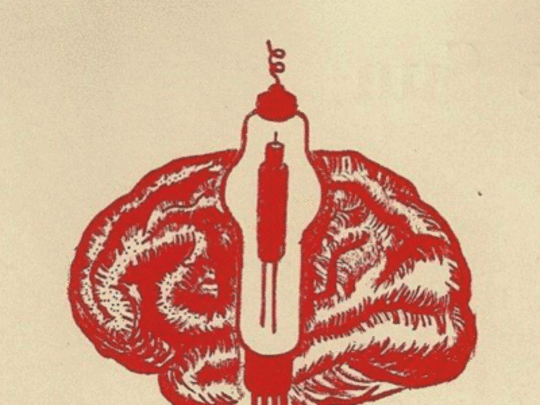
Warp-weighted loom with reconstruction of a fabric with reconstructed Penelope sculpture in the front; in the PENELOPE Laboratory. Photo: Deutsches Museum / Ellen Harlizius-Klück | Roy Hessing
Material and Production
PENELOPE
The PENELOPE project explores the contribution of ancient weaving to the history of science and digital technology. We investigate ancient source texts as well as practices and technical principles of ancient weaving, for example in the PENELOPE laboratory at the Museum for Plaster Casts of Classical Sculptures, Munich.
Content
PENELOPE: A Study of Weaving as Technical Mode of Existence
Funded by
[Translate to English:] Das Projekt PENELOPE wird gefördert durch einen ERC Consolidator Grant der Europäischen Kommission im Forschungs-Rahmenprogramm Horizon 2020 (Projekt Nr. 682711)
- Material and Production
- Digital cultures of technology and knowledge
- Mathematik und Informatik
Edited by
Dr. Ellen Harlizius-Klück
Ehem. Leitung ERC-Projekt PENELOPE; Wissenschaftliche MitarbeiterinSenior Researcher
Dr. Giovanni Fanfani
Wissenschaftlicher MitarbeiterERC Grant Projekt PENELOPE
Dr. Annapurna Mamidipudi
Wissenschaftliche MitarbeiterinERC Grant Projekt PENELOPE
Project description
The PENELOPE project explores the contribution of ancient weaving to the history of science and technology, particularly digital technology. The project involves both the study of ancient source texts and the practices and technical principles of ancient weaving. We are reconstructing these in our PENELOPE laboratory at the Museum for Plaster Casts of Classical Sculptures, Munich, on replica warp-weighted looms.
Weaves consist of threads that cross over or under each other, making weaving a digital and even binary technology. The PENELOPE project will demonstrate that there is a previously unexplored contribution of weaving to the emergence of science in ancient Greece.
The project takes an interdisciplinary and partly experimental approach. In one of our experiments, the PENELOPE performance, we compare recurring rhythmic cycles in two temporally distant forms: the ancient Greek text genre called epiplokē and Tidal Cycles, a live code for music developed by team member Alex McLean. Despite their distance in time, they meet in the idea of pattern as rhythm, illustrating an early method of algorithmic pattern generation that relates to the principles of weaving (hidden in the word epiplokē). Six pattern-matrix-controlled and tablet-woven PENELOPE robots act as dancers.
The PENELOPE lab at the Museum of Plaster Casts is open to the public and consists of two warp-weighted looms, loom equipment and tools, as well as the pattern matrices, and a live-codable loom. There we invite weavers to participate in joint experiments.
Podcast: Gewebte Zeiten. Der Code der alten Griechen
Events
- Algomech Symposium 2017, Sheffield
- Algomech Symposium 2019, Millenium Gallery, Sheffield
- Kick-off-Workshop PENELOPE, Mai 2017, Kerschensteiner Kolleg
Workshop-Poster - Proof-of-Concept-Workshop Penelope, Juni 2019, Kerschensteiner Kolleg
Workshop-Poster - HOMO-TEXTOR-Konferenz, September 2019, Kerschensteiner Kolleg
Flyer
Publications
[Translate to English:]
- Harlizius-Klück, E.: Das Penelope-Labor. In: Lebendiger Gips: 150 Jahre Museum für Abgüsse Klassischer Bildwerke München. München 2019, S. 166–171
- Harlizius-Klück, E.: Der Stoff und die Ordnung des Kosmos. Zur Bedeutsamkeit des textilen Mustertransfers im frühen Griechenland. In: Wagner-Hasel, B.; Nosch, M.-L. (Hrsg.): Gaben: Waren und Tribute: Stoffkreisläufe und antike Textilökonomie. Stuttgart: Steiner 2019, S. 397–430
- McLean, A.; Bell, R.: (2019): Pattern, Code and Algorithmic Drumming Circles. In: Fourth International Conference on Live Coding (ICLC2018) 2019
- Harlizius-Klück, E.: Digital Sieves. In: Baert, B.: About Sieves and Sieving, Berlin/Boston: DeGruyter 2019, S. 95–103
- Fanfani, G.: Craftsmanship and Technology as Chorality. The Case of Weaving Imagery in Archaic and Classical Choral Lyric. In: Dionysus ex Machina 9 (2018), S. 6–40
- McLean, A.; Fanfani, G.; Harlizius-Klück, E.: Cyclic Patterns of Movement across Weaving, Epiplokē and Live Coding. In: Dancecult. Journal of Electronic Dance Music Culture 10 (2018), S. 5–30
- McLean, A.; Harlizius-Klück, E.: Fabricating Algorithmic Art. In: Golding, S. (Hg.): Parsing Digital. Conversations in Digital Art by Practitioners and Curators, Austrian Culture Forum London. London 2018, S. 10–21
- McLean, A.; Griffiths, D.; Harlizius-Klück, E.: Digital Art – A Long History. In: Proceedings of International Conference on Live Interfaces, Porto 2018, S. 71–77
- Harlizius-Klück, E.; McLean, A.; Jefferies, J.: Introduction: Weaving Codes – Coding Weaves. In: TEXTILE Journal of Cloth and Culture 15 (2017), S. 118–123
- Harlizius-Klück, E.: Weaving as Binary Art and the Algebra of Patterns. In: TEXTILE Cloth and Culture 15 (2017), S. 197
Further links
[Translate to English:] Weitere Publikationen des PENELOPE Teams
https://zenodo.org/communities/penelope/[Translate to English:] Wissenschaftlicher Blog des PENELOPE-Projekts
https://penelope.hypotheses.org



![[Translate to English:] [Translate to English:]](/assets/_processed_/c/c/csm_Headerbild_Chiffriermaschinen_Rainer_3889c3d7be.png)
![[Translate to English:] [Translate to English:]](/assets/_processed_/e/4/csm_Play_YagouRelaunch_Bild1_bf60a9b213.jpg)
![[Translate to English:]](/assets/_processed_/f/d/csm_Bild-1_Ephmeride-des-Kleinen-Planeten-Hecuba_824f1969c4.jpg)
![[Translate to English:] [Translate to English:]](/assets/_processed_/f/1/csm_Forschungsinstitut_Projekt_Algorithmische_Wissenskulturen_Header_HashagenSeising_743a1da746.jpg)
